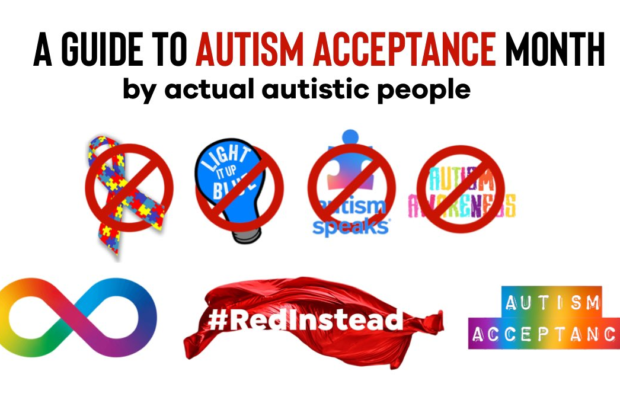Use Austism Accepetance month to develop deeper understanding than misguided slogans, donations

April. A month of flowers blooming, birds singing and autistic people everywhere are trying desperately to be heard over those trying to speak for them.
I’m gonna be honest. Finding the right angle to write this from has been nearly impossible. It’s a hard topic to cover even when you have ASD. It’s hard because unlike queer rights or BIPOC rights, almost no one has fought for the rights of autistic people. All over the Internet misinformation runs rampant. Companies and organizations that hurt us are put on pedestals and autistic voices are drowned out or silenced because we don’t get the same respect as other minorities. People who have never experienced any of these symptoms are given a platform that those who overcome them daily will never have a chance to see.
Because no one respects autistic people. And if you argue with that sentiment, ask yourself, how do you talk about autism, how do you talk to people with ASD? Is it respectfully, the same way you would any other peer? Or is it different? Do you use a different vocabulary set, do you change your tone, do you expect them to catch onto certain cues, then get mad when they don’t? Draw your own conclusion, but the likelihood is that if you think you respect autistic people, you probably don’t. And here’s why.
Most autistic people don’t take into account that autistic people aren’t neurotypical. It seems really simple, but it’s true. Most people expect autistic people to work according to their methods, but that just isn’t how it works. April is Autism Acceptance Month not because autistic people need to be celebrated, but because so many people forget that these people exist outside of society’s rules. Takiwātanga is a Māori word that translates directly to “in their own time and space.” What’s important about this is takiwātanga is also a derivative of the word in that language meaning autism.
And frankly that’s a great way of saying it. In their own time and space is a perfect way of talking about autism because that’s all it is. People with ASD aren’t stupid or beligerent, we just have to work according to our schedule, and while that may not be convenient, what’s less convenient is having a disability that is often misdiagnosed due to biases in the psychiatric field and being called a burden your entire life because you have a disability that isn’t ‘real’ according to half the adults you meet.
ASD is hell to deal with on its own. It has physical components, mental components and social components. You get super sick for no reason, develop depression and anxiety, and have random panic attacks from too many people speaking at once. You’re constantly either overwhelmed or underwhelmed, either numb to the core or literally freaking out, but you can’t show it cause then you’ll be discredited as a person. You have to learn thousands of rules for socializing that everyone else breaks daily, but you can’t break them once, and in the end no one is there for you unless you have continuous meltdowns or have some other big “inconvenient” symptom like being non-verbal, and this hell isn’t helped by those who refuse to take the time to research and learn about this community.
So this month if you actually care about autism Acceptance, actually listen to the community. Don’t wear blue, stop using puzzle pieces to represent us, stop supporting groups like Autism Speaks (which is a whole other can of worms on its own), do actual research and most importantly listen to the people who deal with it and make changes based on what they say. To your attitude, to your classrooms, to your work places. Anywhere that disabled people are forced to be should be comfortable, and that goes for those with mental disabilities as well, not just those with physical ones. If you can install a ramp, or put in a lift, you can turn down the lights and lower your speaking volume.
So support Autism Acceptance Month by wearing red or gold, sport a sunflower, rock a rainbow infinity symbol, and maybe instead of donating to a sketchy organization, just give an autistic person you know $20. Trust me, it will actually help autistic people out a lot more than giving some crappy company your cash.









You must be logged in to post a comment Login